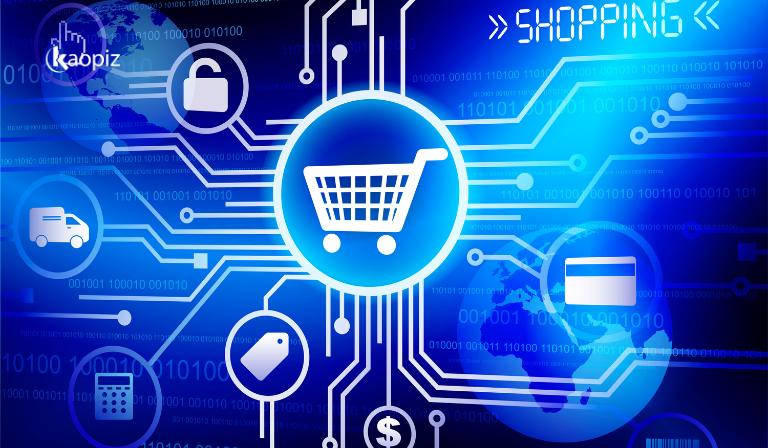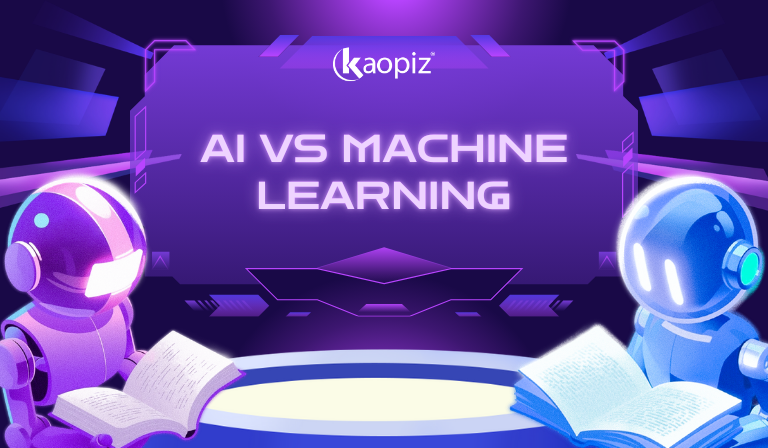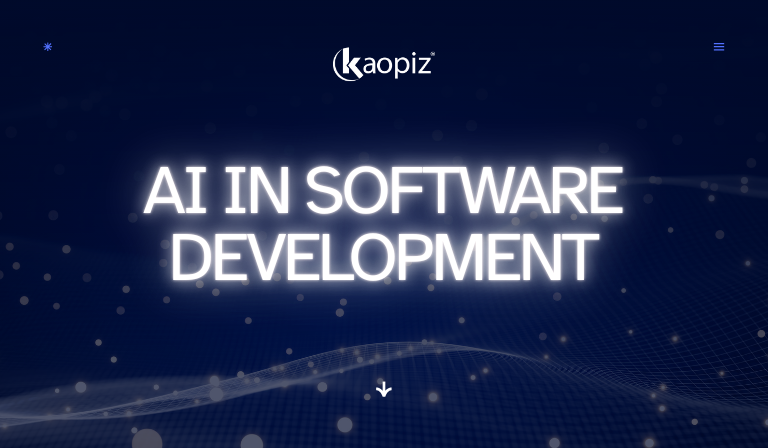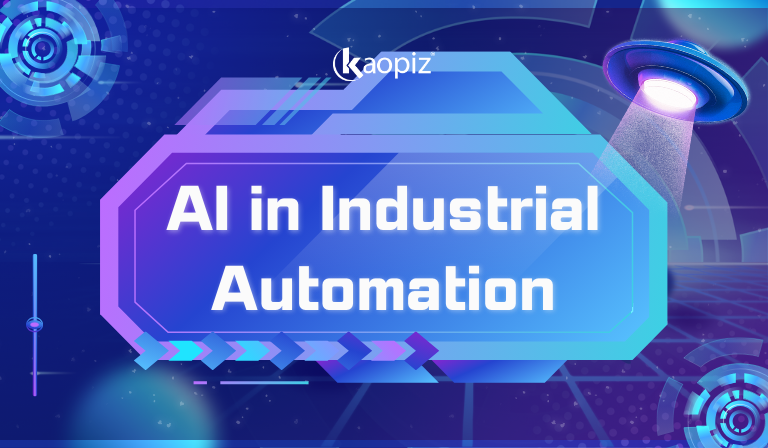AI in E-commerce – Transforming Online Retail and B2B Businesses in Singapore (2025)
Artificial Intelligence (AI) is revolutionizing e-commerce, from personalized recommendations and virtual try-ons to smart inventory management and autonomous operations.
In Singapore, where online shopping is part of daily life, competition is intense. Businesses must innovate to stand out, and AI offers the tools to analyze data, predict trends, and deliver seamless customer experiences.
This blog explores the benefits, applications, and future trends of AI in e-commerce, with real-world examples and tips to help businesses stay competitive and grow.
Table of Contents
- What Is AI in E-commerce?
- The Growth of E-commerce in Singapore
- What Are the Main Benefits of AI for E-commerce Businesses?
- What Are the Key Applications of AI in E-commerce?
- Real-World AI in E-commerce Examples
- What Are the Challenges and Risks of Using AI in E-commerce?
- How Can Singapore Businesses Implement AI in E-commerce Effectively?
- Why Should Businesses Partner with an Offshore AI Development Company?
- Future Trends of AI in E-commerce (2025 and Beyond)
- Conclusion
- FAQs
What Is AI in E-commerce?
AI in e-commerce uses technologies like machine learning (ML), natural language processing (NLP), computer vision, and generative AI to create smarter, personalized, and efficient online shopping experiences. It powers features such as product recommendations, AI chatbots, dynamic pricing, and virtual try-ons, helping businesses boost sales and streamline operations.

The global AI in retail and e-commerce market was valued at $11.61 billion in 2024 and is expected to reach $40.74 billion by 2030, growing at a CAGR of 23.0%. This rapid growth is fueled by rising internet and smart device usage, increased need for store monitoring, and government policies driving digital transformation.
In competitive markets like Singapore, adopting AI is essential for e-commerce businesses to predict demand, personalize marketing, and optimize inventory, ensuring both customer satisfaction and long-term growth.
The Growth of E-commerce in Singapore
Singapore is one of Asia’s most digitally advanced markets, with universal high-speed internet and a tech-savvy population. Online shopping has become a daily habit, driven by convenience, diverse product options, and seamless digital payments.
According to Statista, Singapore is the most affluent e-commerce market in Southeast Asia, with an average order value of $137.4 and over 50% of consumers shopping online weekly. Cross-border shopping is also booming, positioning Singapore as a regional hub.
The country is home to leading players like Shopee and Lazada, while social commerce platforms such as TikTok Shop are rapidly gaining traction. Mobile devices now dominate shopping activities, and omnichannel retail is on the rise, blending online and offline experiences.
As the market evolves, businesses must embrace AI-driven solutions to deliver personalized, efficient, and innovative shopping experiences.
What Are the Main Benefits of AI for E-commerce Businesses?
AI is transforming how e-commerce businesses attract, engage, and retain customers, while also streamlining operations behind the scenes. By leveraging technologies like ML, NLP, and generative AI in e-commerce, companies can make smarter decisions, boost efficiency, and deliver highly personalized shopping experiences.

Here are the key benefits of AI in e-commerce:
- Personalized Shopping Experiences: AI analyzes browsing behavior and purchase history to recommend relevant products, personalize promotions, and adjust pricing dynamically, driving higher conversion rates.
- Smarter Marketing Campaigns: AI-powered analytics predict trends and segment audiences, while generative AI creates ad copy and content at scale, improving ROI and marketing efficiency.
- 24/7 Customer Support: AI chatbot in e-commerce handles customer inquiries instantly, reducing support costs and providing seamless, round-the-clock service to improve satisfaction.
- Optimized Inventory Management: AI forecasts demand accurately, preventing stockouts or overstocking, while streamlining warehouse and supply chain operations.
- Fraud Detection and Security: Machine learning algorithms detect suspicious activities and flag fraudulent transactions in real time, keeping online shopping secure.
- Data-Driven Decision Making: Real-time insights help businesses make smarter decisions, adapt to market changes quickly, and stay ahead of competitors.
By integrating AI, e-commerce businesses—especially in competitive markets like Singapore—can increase sales, improve efficiency, and gain a stronger competitive edge, setting the foundation for sustainable growth.
What Are the Key Applications of AI in E-commerce?
AI is reshaping e-commerce by powering smarter, more efficient processes across the entire shopping journey. From personalized recommendations to intelligent automation, here are the key applications driving growth and innovation in the industry.
Personalized Shopping Experiences
AI empowers e-commerce businesses to deliver tailored experiences by analyzing customer data such as browsing behavior, purchase history, and preferences.
- Product recommendations based on real-time data boost conversion rates and increase average order value.
- Dynamic pricing adjusts offers for individual shoppers, improving engagement and sales.
- Personalized promotions and content create a unique shopping journey, enhancing customer loyalty and repeat purchases.
For instance, Amazon’s recommendation engine leverages AI and machine learning in e-commerce to suggest relevant products — a strategy that contributes to 35% of its total sales, demonstrating the powerful impact of personalization on revenue growth.
Intelligent Search and Navigation
AI enhances search and navigation, making it easier for customers to find exactly what they want, faster and with greater accuracy.

- NLP enables search engines to understand user intent, even with typos or vague queries.
- Visual search lets shoppers upload images to find similar products instantly, improving discovery and engagement.
- Predictive search and filters provide real-time suggestions and personalized results based on past behavior.
By delivering smarter, more intuitive search experiences, businesses can reduce cart abandonment, improve user satisfaction, and drive higher conversions.
AI-Driven Marketing and Sales
AI helps e-commerce businesses optimize marketing campaigns and boost sales by leveraging data-driven insights and automation.
- Predictive analytics forecasts trends and customer behavior, allowing businesses to target the right audience with the right message.
- Generative AI creates personalized content such as ad copy, email campaigns, and product descriptions at a scale.
- Dynamic pricing strategies adjust prices in real time based on demand, competition, and buying patterns.
With AI, marketing becomes smarter and more efficient, driving higher ROI while delivering a personalized shopping experience that converts.
Virtual Shopping Assistants
AI-powered virtual shopping assistants enhance the customer experience by providing instant, personalized support throughout the buying journey.
- AI chatbots answer questions, handle returns, and guide shoppers 24/7, reducing the need for human agents.
- Voice assistants allow customers to search and shop using natural speech for a hands-free, convenient experience.
- Personalized recommendations and real-time help improve customer satisfaction and conversion rates.
By offering seamless, round-the-clock assistance, virtual shopping assistants help businesses boost sales, lower support costs, and build stronger customer relationships.
AI in B2B E-commerce
AI is transforming B2B e-commerce by streamlining complex processes and delivering smarter, more efficient buying experiences.

- Predictive analytics forecast demand and optimize bulk ordering, helping businesses manage inventory and reduce waste.
- AI-driven recommendations suggest complementary products or services, increasing upsell and cross-sell opportunities.
- Automated workflows simplify order management, contract handling, and customer support.
By integrating AI, B2B e-commerce platforms can improve efficiency, reduce costs, and build stronger, data-driven relationships with business clients.
Agentic AI for Autonomous E-commerce
Agentic AI represents the next evolution of e-commerce, where AI agents operate independently to manage and optimize business processes without constant human input.
- Autonomous marketing campaigns: AI agents can plan, launch, and adjust campaigns in real time based on customer behavior and performance data.
- Smart inventory management: Automatically forecast demand, restock products, and prevent overstock or stockouts.
- Personalized customer engagement: Provide real-time, hyper-personalized shopping experiences across multiple channels.
- Automated decision-making: Handle complex tasks like dynamic pricing or vendor negotiations with minimal oversight.
By leveraging agentic AI, e-commerce businesses can scale faster, reduce manual workloads, and deliver seamless, always-on operations that keep them ahead in a competitive market.
Real-World AI in E-commerce Examples
AI is no longer just a concept — it’s actively transforming e-commerce businesses worldwide. Here are two real-world examples that showcase how AI drives innovation, improves customer experiences, and boosts sales.
Kaopiz’s Case Study: AI-Powered Shopping Prediction Web App
A retail and e-commerce company needed an AI-powered web app to predict shopping trends by analyzing user-input phrases, helping with demand forecasting and personalized recommendations.

Challenges:
- Hard-to-predict unstructured shopping data.
- Manual trend tracking, leading to inefficiencies.
- Need for clear visualizations of shopping trends.
Solution:
Kaopiz built a user-friendly AI web app with:
- A data analysis engine to process behavior and generate insights.
- Graphical visualizations for real-time trend tracking.
- User management features for access control and customization.
- Hosting on AWS for scalability and security.
Impact:
- Automated trend analysis, saving time and effort.
- Improved forecast accuracy and decision-making.
- Clear, visual insights for marketing and inventory planning.
- Scalable, secure platform ready for future growth.
Sephora’s AI-Powered Virtual Try-On Experience
Sephora, a global beauty retailer, needed a digital solution to help customers confidently choose makeup products online, especially as shopping shifted to digital channels during the COVID-19 pandemic.
Challenges:
- Customers couldn’t try products physically, causing hesitation and high return rates.
- Difficulty replicating the personalized in-store experience online.
- Growing demand for digital-first, interactive solutions.
Solution:
Sephora launched Virtual Artist, an AR and AI-powered tool that lets users try on makeup virtually via phone or computer.
- AI analyzes facial features to apply to products realistically, adjusting for skin tone and lighting.
- Offers personalized product recommendations and complete looks.
- Integrate across Sephora’s app, website, and kiosks for an omnichannel experience.
Impact:
- 3x higher purchase completion rates among Virtual Artist users.
- 30% reduction in returns for makeup products.
- Average app session time increased from 3 to 12 minutes.
- Boost customer confidence, engagement, and loyalty.
Sephora successfully positioned itself as a digital leader in beauty retail, blending innovation with a seamless shopping experience.
What Are the Challenges and Risks of Using AI in E-commerce?
While AI offers powerful opportunities for e-commerce businesses, its implementation also comes with challenges and potential risks that must be managed carefully:
- High Implementation Costs: Developing and integrating AI solutions can be expensive, especially for small businesses, requiring investment in tools, infrastructure, and skilled talent.
- Data Privacy and Security Concerns: AI relies on customer data to deliver personalization. Mishandling this data or facing breaches can lead to loss of trust and legal issues, especially with strict regulations like GDPR or Singapore’s PDPA.
- Bias in AI Algorithms: Poorly trained AI models may produce biased recommendations, impact customer experience, and potentially harm a brand’s reputation.
- Complex Integration with Existing Systems: Merging AI with legacy e-commerce platforms or third-party tools can be technically challenging and time-consuming.
- Dependence on Quality Data: AI systems need clean, accurate, and sufficient data to function effectively. Incomplete or incorrect data can lead to unreliable insights.
- Customer Resistance to AI: Some shoppers may distrust AI-driven experiences, such as chatbots or dynamic pricing, if they feel interactions lack a human touch.
By addressing these challenges through careful planning, strong data governance, and transparent practices, e-commerce businesses can minimize risks while fully unlocking the potential of AI.
How Can Singapore Businesses Implement AI in E-commerce Effectively?
For businesses in Singapore, adopting AI in e-commerce requires a strategic and step-by-step approach to maximize value and minimize risks.

Here’s how to use AI in e-commerce effectively:
- Define Clear Goals: Identify specific objectives, such as improving personalization, boosting conversion rates, optimizing inventory, or automating customer support.
- Start with Pilot Projects: Begin with small-scale initiatives like AI chatbots or recommendation engines to test feasibility and measure ROI before scaling.
- Ensure High-Quality Data: AI depends on clean, accurate, and well-structured data. Implement strong data management practices to ensure reliable insights.
- Choose the Right Technology Partner: Work with an experienced AI development company or offshore AI team to gain technical expertise and accelerate deployment.
- Integrate Seamlessly with Existing Systems: Ensure that new AI tools connect smoothly with your e-commerce platform, CRM, and other business systems to avoid operational disruption.
- Focus on Compliance and Security: Protect customer data and comply with Singapore’s PDPA and other regulations to maintain trust and avoid legal risks.
- Continuously Monitor and Optimize: Track performance metrics, gather feedback, and refine AI models regularly to improve accuracy and customer experience over time.
By following these steps, Singapore businesses can leverage AI to drive innovation and enhance customer satisfaction.
Why Should Businesses Partner with an Offshore AI Development Company?
Building AI solutions in-house can be costly and time-consuming, especially for businesses lacking specialized expertise. An outsourcing AI development company offers access to skilled talent, faster delivery, and scalable solutions — all while reducing costs.
Benefits of Partnering with an Offshore AI Development Company
Implementing AI in e-commerce requires specialized skills, advanced technology, and significant investment. For many businesses, especially startups and SMEs, building an in-house AI team can be challenging and costly. Partnering with an offshore AI development firm Singapore offers a smart, scalable solution with multiple advantages:
- Access to Specialized Talent: Offshore teams provide a wide range of expertise in machine learning, data engineering, and cloud services without the difficulty of local hiring.
- Cost Efficiency: Reduce development costs (40-60%) while maintaining high quality by leveraging teams in countries with competitive labor rates, such as Vietnam.
- Faster Time-to-Market: Experienced offshore teams can quickly design, build, and deploy AI solutions, helping businesses stay ahead of competitors.
- Scalability and Flexibility: Easily scale your team up or down based on project needs without long-term staffing commitments.
- Focus on Core Business: Free up internal resources to focus on strategy, marketing, and growth while the offshore team handles the technical workload.
Why Partner with Kaopiz?
Kaopiz is one of the top IT outsourcing companies in Singapore, specializing in AI-powered e-commerce solutions and providing AI development services tailored to meet the needs of both retail and B2B businesses.

- Proven Expertise: 1000+ successful projects for 200+ global clients, including AI integration, generative AI solutions, and custom software development.
- Strong Talent Pool: A team of 600+ skilled engineers, with deep knowledge of cloud computing, machine learning, and e-commerce platforms.
- Trusted by Global Brands: Long-term partnerships with clients in Japan, Singapore, the US, and Europe.
- Secure and Scalable: As an AWS Advanced Tier Services Partner, we ensure solutions are secure, reliable, and future-ready.
- Flexible Engagement Models: From full project outsourcing to staff augmentation, we adapt to your business needs.
By partnering with Kaopiz, businesses can innovate faster, reduce costs, and gain a competitive edge in the rapidly evolving e-commerce landscape.
Future Trends of AI in E-commerce (2025 and Beyond)
As technology evolves, AI in e-commerce will continue to reshape how businesses operate and how customers shop. Here are the top trends to watch in 2025 and beyond:
- Rise of Agentic AI: AI agents will independently manage tasks like marketing campaigns, inventory planning, and customer support, enabling fully autonomous e-commerce operations.
- Generative AI for Hyper-Personalization: Generative AI will create personalized product descriptions, ads, and recommendations in real time, making every shopping experience unique and engaging.
- Voice Commerce Expansion: With the growth of voice assistants, more customers will shop through voice-enabled devices, demanding seamless voice search and purchase experiences.
- AR and Virtual Try-Ons: AI-driven AR tools will become mainstream, allowing customers to visualize products like furniture, clothes, or makeup before purchase, reducing returns.
- Smarter Fraud Detection and Security: AI will play a bigger role in identifying suspicious transactions and protecting both businesses and customers from cyber threats.
- Sustainable and Ethical Shopping: AI will help brands track supply chains and predict demand more accurately, reducing waste and supporting sustainability initiatives.
- Seamless Omnichannel Integration: Future AI systems will unify data across online and offline channels, creating consistent and connected shopping journeys.
By staying ahead of these trends, e-commerce businesses can future-proof their operations, deliver cutting-edge customer experiences, and maintain a competitive edge in the rapidly evolving digital marketplace.
Conclusion
AI is no longer just a trend — it’s a critical driver of growth and innovation in the e-commerce industry. From personalized shopping experiences and virtual try-ons to smart inventory management and autonomous operations, AI empowers businesses to deliver seamless, data-driven, and customer-centric solutions.
By partnering with an experienced offshore AI development company like Kaopiz, businesses can access top-tier talent, reduce costs, and accelerate their digital transformation journey. The future of e-commerce will be defined by AI-driven personalization, automation, and innovation — and the time to act is now.
FAQs
- How Does AI Enhance E-commerce Photography and Product Images?
- AI tools can automatically edit, enhance, and optimize product photos, improving clarity, background removal, and color accuracy. They also enable virtual try-ons and 3D visualization, helping customers make confident purchase decisions while reducing return rates.
- How Can Small Businesses Use AI for E-commerce Growth?
- Small businesses can start with affordable AI tools like chatbots for customer service, recommendation engines to boost sales, and AI-driven marketing analytics. These solutions help improve customer engagement, automate processes, and increase revenue without heavy upfront costs.
- What Is Agentic AI in E-commerce?
- Agentic AI refers to autonomous AI agents that can independently manage e-commerce operations, such as launching marketing campaigns, adjusting pricing, or optimizing inventory — all without constant human supervision.
- Why Outsource AI Development to Singapore Companies?
- Singapore offers highly skilled AI talent, strong infrastructure, and strict data privacy regulations. Partnering with a Singapore-based company ensures quality, compliance, and proximity to key Southeast Asian markets, making collaboration smoother and more efficient.
- How Much Does It Cost to Implement AI in E-commerce?
- Costs vary depending on the project’s complexity. Small-scale solutions like chatbots can start from a few thousand dollars, while custom AI systems for personalization, demand forecasting, or automation may range from tens to hundreds of thousands. Partnering with an offshore team like Kaopiz helps optimize costs without compromising quality.
Trending Post






















No Comments yet!